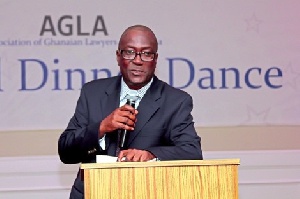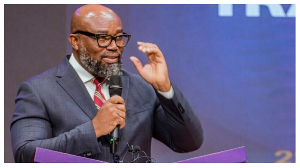The Ghana Centre for Democratic Development (CDD-Ghana) has thrown its weight behind a decision to make assembly elections partisan.
The Executive Director of CDD-Ghana, Professor H. Kwasi Prempeh explained that electing local-level leaders on a partisan basis would cure the winner-takes-all syndrome which is pervasive in Ghana’s body politic.
Prof Prempeh told Benjamin Akapko on the Executive Breakfasts Show (EBS) on Class 91.3FM on Tuesday, 19 November 2019 that examples exist around from which Ghana could learn.
“We [CDD] believe that it is not a bad thing to have a country where a minority party, the opposition party or any third party that loses power nationally, has an opportunity, if the people so choose locally, to also share in the executive power at the local level by participating to elect their own person as an MMDCE”, he explained.
“We can’t be blind to certain facts”, he said, explaining: “You sit in Accra and parties have different strongholds in different parts of the country; NPP is in government today, it could leave government the next day, when it is in government, it controls the entire territory in terms of executive power. What is so wrong in saying that when NPP is in power and in those strongholds where the people still prefer that the NDC be the government in power, why can’t we have a system where, at least, at the local level, the NDC can also have MMDCEs who are elected on the ticket of the party?”
He continued: “Nobody says it should be between those two parties only. Local communities have every right to elect a third party or to elect an independent person in that election.
“And, so, we are saying it is OK, there is nothing really wrong with having a situation where one party runs the country nationally, but, at the local level, there is a variation of parties so that local communities get the opportunity to say: ‘I want my space’. It helps us, at least, to ameliorate the winner-takes-all, opposition-gets-nothing [phenomenon].”
Prof Prempeh mentioned Sierra Leone as one of the countries from which Ghana can learn, as far as in local level elections is concerned.
“This is not the first country in the world that its people are being asked to envisage an arrangement where mayors come from different parties regardless of who governs the country nationally. In Sierra Leone, the mayor of Freetown belongs to party X.”
General News of Tuesday, 19 November 2019
Source: classfmonline.com













